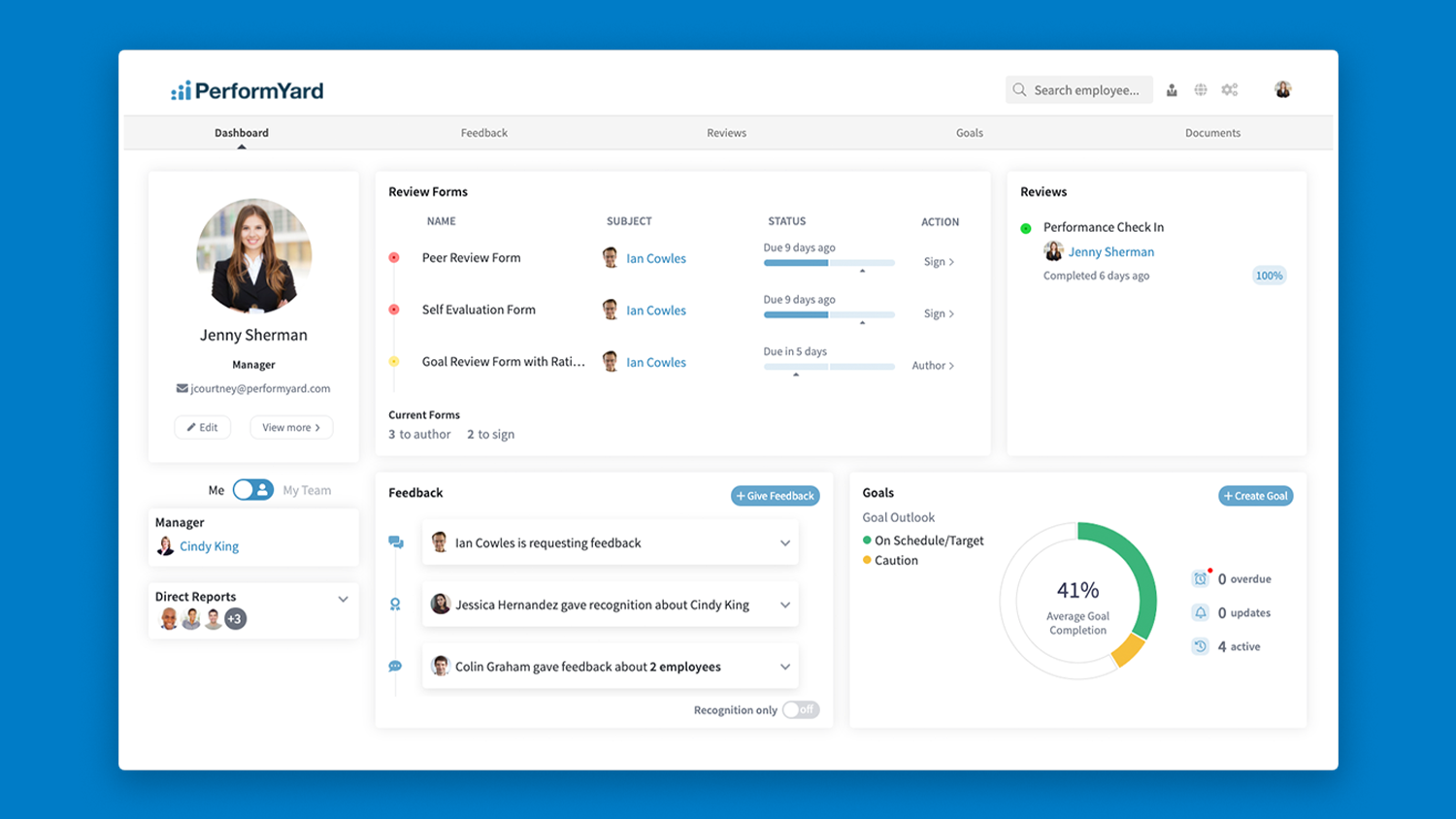
Employee performance reviews take time and effort — and aren’t always conducted very efficiently. According to surveys, nearly 60% of businesses use basic spreadsheets to track and monitor staff performance, and it takes on average one to two weeks for managers to complete a single employee review.
Seeking to make the performance review process easier — or at least less of a headache than it has been historically — Ben Hastings and Jon Malpass founded PerformYard, a platform that provides a collection of software-based retention, staff management and upskilling tools. Since 2013, PerformYard has been mostly bootstrapped outside of a $3 million seed funding round. But Hastings and Malpass — with expansion on the mind — are now securing far larger outside investments.
PerformYard today announced that it raised $95 million from Updata Partners, the D.C.-based tech-focused growth equity fund. Hastings, who serves as PerformYard’s CEO, said that the new cash will be put toward building out PerformYard’s apps and services suite and growing the company’s 70-person team.
“The investment brings with it a partner in Updata that we are aligned with and will enable even faster growth as we enter new customer segments and build new products,” Hastings told TechCrunch in an email interview. “PerformYard has been cash-flow positive with attractive unit economics for the majority of our existence as a business.”
Prior to launching PerformYard, Hastings spent the majority of his career in tech as a go-to-market sales leader. Malpass, meanwhile, worked as a product manager, customer implementation manager and consultant.

PerformYard’s software platform lets managers leave feedback for employees and teams.
“Jon and I initially met in 2009 at another small tech company [and we] collaborated closely over five years and built a very productive and successful working relationship,” Hastings said. “In early 2013, I decided to go all-in on building a software-as-a-service platform for employee performance management and personally funded the initial team. Jon joined a couple months later and throughout 2013 we developed the product vision, hired the engineering team, built the initial version of the platform and closed our first customers.”
PerformYard offers an array of workflows and pipelines for addressing various aspects of employee review, such as annual reviews, quarterly goals and continuous feedback. Using the platform, managers can set employee and team goals, give private notes and conduct employee engagement surveys, connecting PerformYard to existing HR systems to keep records up to date.
In this way, PerformYard is quite similar to the cohort of recent performance management upstarts that includes Lattice, Pathlight (which specifically targets customer-facing teams) and the extraordinarily well-funded HiBob. But Hastings asserts that the depth of PerformYard’s feature set differentiates it.
“Our mission is to simply enable and facilitate any performance process that our customers are looking to automate and improve,” Hastings said. “Customers often choose PerformYard instead of basic or difficult to use performance software and solutions that reside inside larger human resources information system or payroll suites.”
Whether because of strong product differentiation, strong marketing or a combination of both, PerformYard — which charges most customers $5 to $10 per seat per year for access to its platform — appears to be doing quite well for itself. Hastings says that the company has over 1,500 business customers and that revenue has grown 5x in the last four years.
“Our lean and metrics-focused culture, combined with strong product-market fit and superior tech, positions us well for continued growth,” he added. “We’re fortunate to be in a growing industry … Employee development and feedback is the bedrock of outsize business performance and HR leaders at our customers are driving significant value and becoming more important contributors to their businesses.”
techcrunch.com




